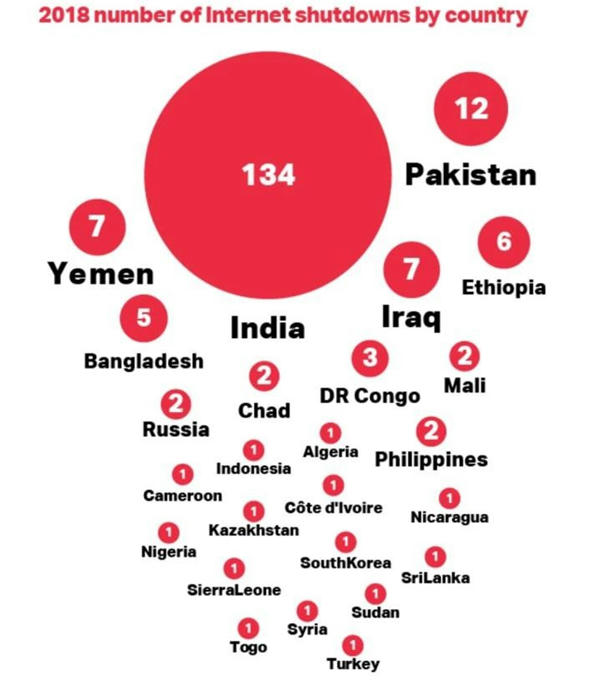Table of Contents
WHAT HAPPENED RECENTLY
- According to the Internet shutdown tracker, India has the highest number of network disruptions ordered by the state with 91 reported instances alone in 2019.
- After large parts of Assam, the Internet has been shut down in the Murshidabad, Maland South 24-Parganas da, Howrah, North 24- Parganas, districts of West Benga
WHY INTERNET IS BLOCKED
- Worldwide, Internet shutdowns are typically used when there is civil unrest, in order to block the flow of information about government actions or to end communication among activists and prevent the spread of rumours and fake news. India, with its cheap data and ubiquitous WhatsApp forwards, is especially vulnerable to the last-mentioned phenomenon.

THE DAMAGE IT DOES
- According to a study by Indian Council for Research on International Economic Relations, the Indian economy suffered a loss of $3 billion due to internet shutdowns in the country from 2012-17.
- More than the economic loss, these shutdowns have far- reaching impact socially and psychologically.They affect individuals’ ability to express opinions freely — a right that is enshrined in the 1948 Universal Declaration of Human Rights and reaffirmed in a 2012 UN Human Rights Council declaration.

THE NUMBERS
- In countries that have “medium” Internet penetration — 49% to 79% of the population — a shutdown could dent daily economic activity by
- $6.6 million per 10 million people, according to an analysis by Deloitte, quoted in The New York Times article.
THE UN RESOLUTION
- On a resolution on “The promotion, protection and enjoyment of human rights on the Internet”, the UN Human Rights Council, guided by the Charter of the UN, said it was “deeply concerned by all human rights violations and abuses committed against persons for exercising their human rights and fundamental freedoms on the Internet, and by theimpunity for these violations and abuses”,
- And “also by measures aiming to or that intentionally prevent or disrupt access to or dissemination of information online, in violation of international human rights law”.























 WhatsApp
WhatsApp